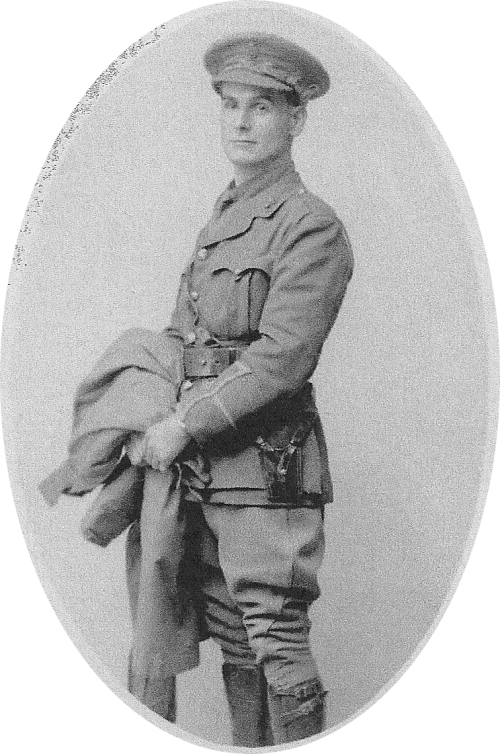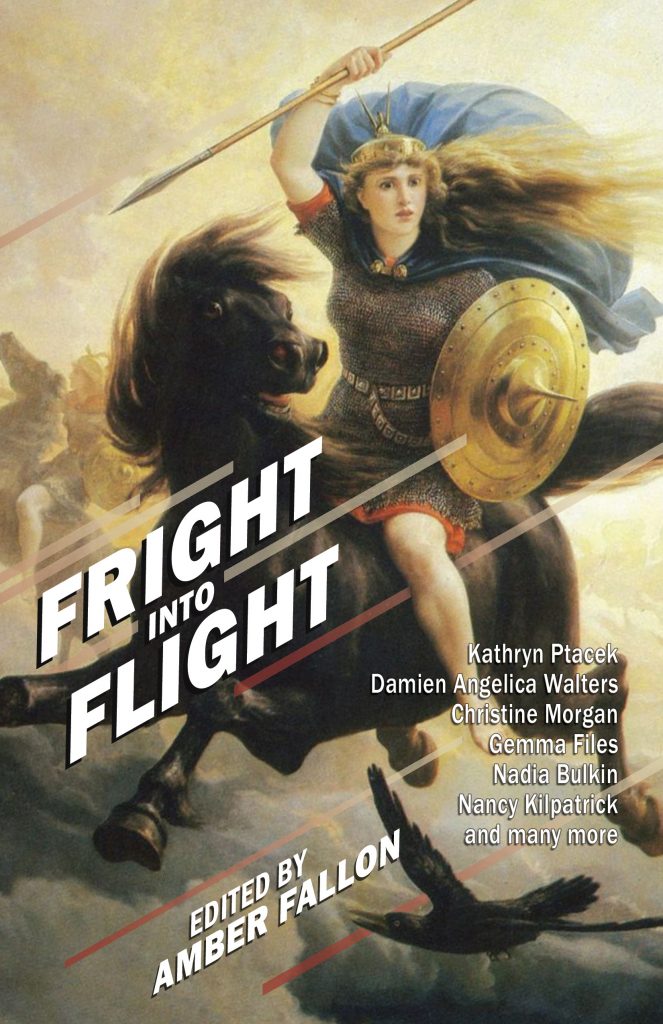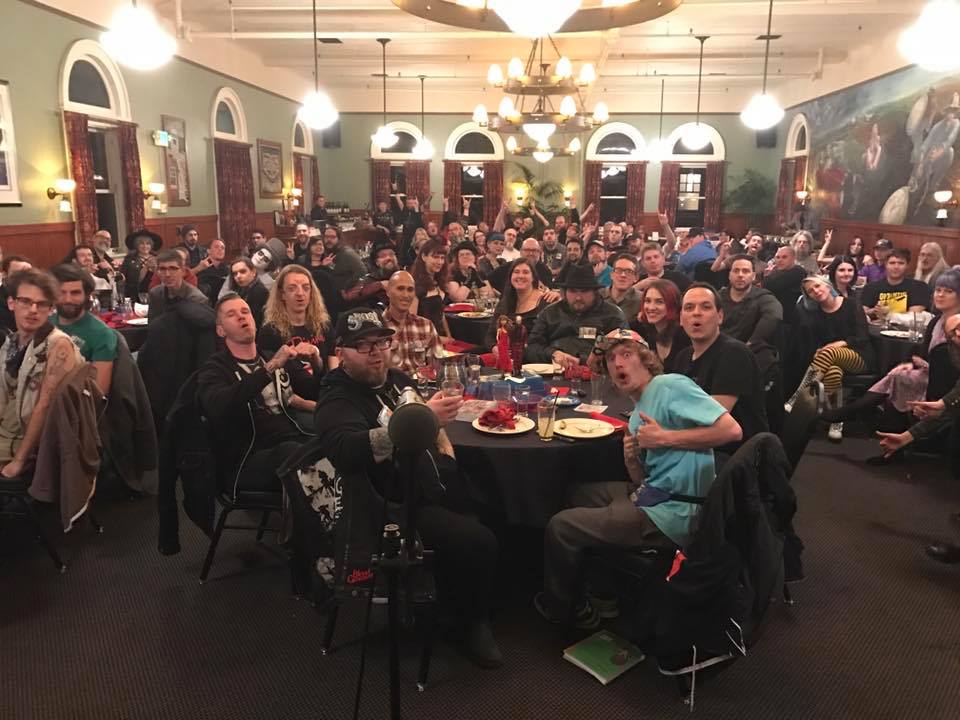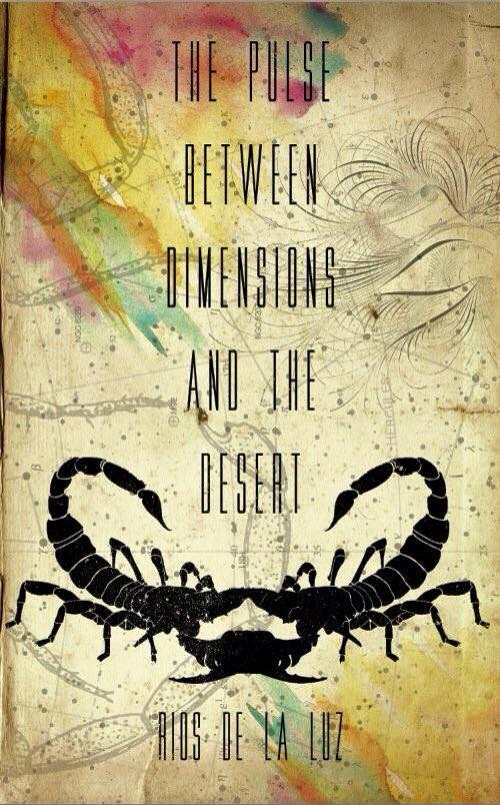Today marks the centenary of the death of author William Hope Hodgson, killed in action by a German artillery shell at the Fourth Battle of Ypres. What follows is the introduction I wrote to The Dream of X and Other Fantastic Visions, part of a five-volume collection of Hodgson’s fiction. A paperback of said volume is forthcoming later this year.

That Delicious Shiver
“It is pointless, though irresistible, to speculate upon what heights of Fantasy Hodgson might have scaled had the war not intervened.” —James Cawthorn & Michael Moorcock, Fantasy: The 100 Best Books
“A ghost story that is worth anything must be really thrilling. It must give us that delicious shiver down the spine, and it must possess mystery. Added to these qualities, it must cling to reality by some sort of explanation, however fantastic the story be, to be truly effective.” —William Hope Hodgson,
“The Writers of Ghost Stories” (an unfinished or lost essay)
This fifth and final volume of the collected fiction of William Hope Hodgson is best if not, perhaps, considered as a mere 9¼ by 6¼ by 1½ blue and silver brick to fill in space on a shelf; nor should it be considered the ragged leftovers of the first four courses. Instead, I’d argue that we’ve saved the best for last; this is dessert, a sweet sampling of Hodgson’s best—and strangest—work, a literary crème brûlée to savor and enjoy.
We begin this volume of Hodgson’s fantastic visions with the evocative and heart-wrenching parable “The Valley of Lost Children,” which originally appeared in Cornhill in February 1906. Sentimental, certainly, but “The Valley of Lost Children” does not shirk from the harsh realities of its day in its depiction of a fantastic realm beyond death. This is followed by the Swiftian conceits of “Date 1965: Modern Warfare,” which imagines the battles of the future to be fought by knife-wielding butchers, with the flesh of the fallen quite literally going to feed the victors. Originally appearing in the December 24, 1908 issue of New Age, it presents a wry and winking examination of the soldier’s lot in life.
“My House Shall Be Called the House of Prayer” (Cornhill, May 1911) and “Judge Barclay’s Wife,” (London Magazine, July 1912) might be excused as Hodgson’s most devout explorations of Christian mercy. But to do so would be to ignore his gift for dialogue, and the intricate way in which he strives to capture the patterns of his protagonists’ speech.
The gender-bending “The Getting Even of Tommy Dodd,” which was later published as “The Apprentices’ Mutiny” in Sea Stories, originally appeared in The Red Magazine, August 15, 1912. While this is a story that can be read for its entertainment value alone, the success that young Tommy Dodd finds in posing as his pretty “cousin,” Jenny (“By George, youngster, you make a pretty girl!”), begs any number of questions about the shipboard world that Hodgson, a sailor and bodybuilder, spent much of his life in and out of.
“Sea Horses” from London Magazine, March 1913, is another tale of a doomed child in an uncaring world, but imbued with the same sort of hope and fancy (even while moored to the harsh ties of reality) exhibited in “The Valley of Lost Children.”
The next batch of adventure yarns all appeared in The Red Magazine, a common venue for Hodgson’s stories, including the D.C.O. Cargunka and Captain Jat tales. “How the Honourable Billy Darrell Raised the Wind” appeared in The Red Magazine, March 15, 1913. “The Getting Even of ‘Parson’ Guyles” appeared in the November 1914 issue. “The Friendship of Monsieur Jeynois” originally appeared in The Red Magazine, August 1, 1915. “The Inn of the Black Crow” originally appeared in The Red Magazine, October 1, 1915. “What Happened in the Thunderbolt” originally appeared in The Red Magazine, January 15, 1916. “How Sir Jerrold Treyn Dealt with the Dutch in Caunston Cove” originally appeared in The Red Magazine, May 1, 1916. “Jem Binney and the Safe at Lockwood Hall” originally appeared in The Red Magazine, October 16, 1916. “Diamond Cut Diamond with a Vengeance” originally appeared in The Red Magazine, January 1, 1918.
The explosive “Eloi, Eloi, Lama Sabachthani” originally appeared in Nash’s Illustrated Weekly, September 20, 1919.
“The Room of Fear,” much like “The Valley of Lost Children” and “Sea Horses,” deals with a child’s fate, as a young mother and her plucky son confront the dull thunder of childhood fears which may, of course, be more substantial than either one imagine. Suspected to be an early story, “The Room of Fear” was unpublished during Hodgson’s lifetime. Another early and unpublished story is “The Promise,” a supernatural tale of a sibling’s love and the miraculous promise of resurrection.
The novel fragment “Captain Dang” imports its title character from “The Sharks of the St. Elmo,” which appears in volume three of this series, but seems otherwise unconnected to it. Still, with lines like “There’s poetry in canvas, laddie, when the wind gets into it,” “Captain Dang” shows that even Hodgson’s cast-offs hold an evocative power that ranks among fiction’s best.
“Captain Dan Danblasten,” Hodgson’s tale of a lusty pirate’s retirement and the strange will he leaves to a childhood sweetheart and her seven daughters, appeared in the May 1918 issue of The Red Magazine, published the same week as The Times ran Hodgson’s obituary (April 19, 1918 is believed to be the date Hodgson was killed by a German shell).
From there, we move on to Hodgson’s copyright versions, stripped-down abridgements of his best-known works, written to secure American copyright protections. Many of these have a “Cliffs Notes” feeling to them, particularly “The Ghost Pirates” and “Carnacki, the Ghost Finder.” The title story, “The Dream of X,” however, distills Hodgson’s epic novel, The Night Land, down to its barest essentials, losing none of its power or poetry in the process. It is likely that these copyright versions were never intended by Hodgson to be seen by a reading audience, but “The Dream of X,” perhaps best known due to the 1977 Donald M. Grant publication, with its breathtaking Stephen A. Fabian illustrations, stands as a testament to the shame that would have been. Also in this section are the stories “Senator Sandy Mac Ghee,” “The Last Word in Mysteries,” and “The Dumpley Acrostics.”
Next, we present a spattering of alternate versions, including “An Adventure of the Deep Waters,” “Captain Gunbolt Charity and the Painted Lady,” “The Storm,” and “The Crew of the Lancing.” We’ll leave it to the reader to determine what might have been. We close this volume with a pair of counterfeits, “The Raft,” and “R.M.S. ‘Empress of Australia.’”
In his introduction to the first volume of this series, Night Shade Books’ Editor-in-Chief Jeremy Lassen makes the assertion “it goes without saying that William Hope Hodgson was one of the great fantasists of the 20th century.” Regardless, Night Shade spent the next four volumes proving that point. Now, as we arrive at the final volume of the series, we believe we have fulfilled our goal, that in presenting our definitive edition of the collected fiction of William Hope Hodgson, we have ensured that Hodgson will be considered by the next generation of scholars, editors, publishers, authors, and readers. Considered, not just against the works of literary peers, from H. G. Wells to Bram Stoker to Wilfred Owen, but against those writers whose own works benefit from and build upon Hodgson’s masterful imagination, from Lovecraft and Clark Ashton Smith to Jack Vance, Gene Wolfe, Greg Bear, and China Miéville.
Ross E. Lockhart
Petaluma, California
2008



